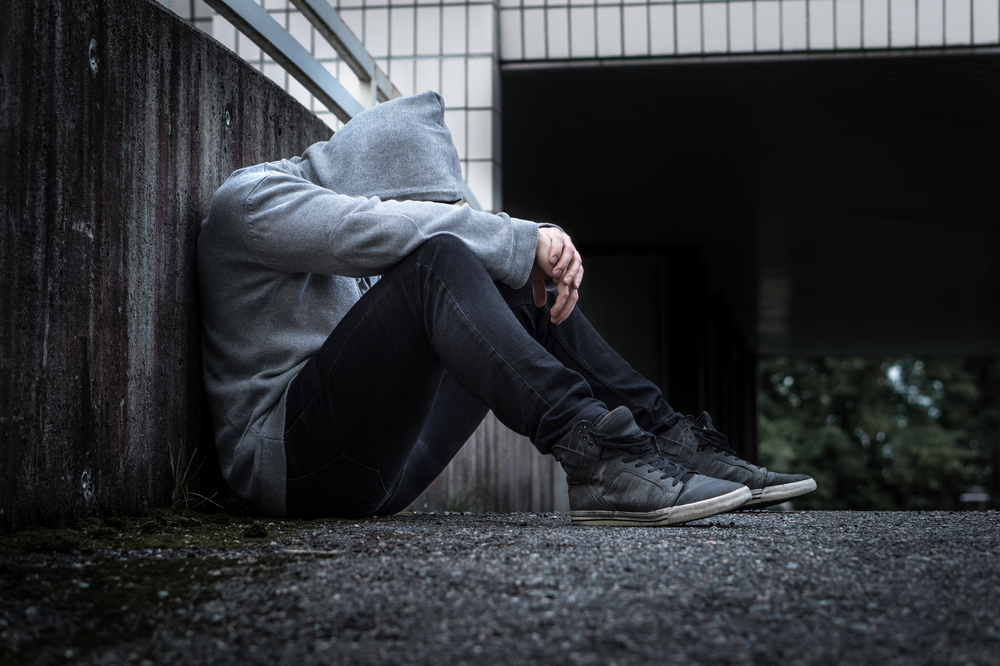
“Eating your feelings”
Your brain is a nonstop, high powered, supercomputer that your body allocates over 20% of energy output into. Needless to say, our brains require an absurd amount of nutrients to operate at an efficient level. So, what are you feeding it? We all have a clear understanding of the correlation between your physical health and your diet, however, we often negligent the effects of our everyday food consumption to our mood and mental health.
Though there are numerous factors linked to depression and mood irregularities, the rise of nutritional psychiatry has found strong links between the intake of unprocessed whole grains, fruits, and lean proteins with the decreased likelihood of depressive symptoms. “Traditional Diets”, Like the Mediterranean diet and the traditional Japanese diet, compared to the Western diet, have shown that the risk of depression is 25% to 35% lower in those who eat a traditional diet. Traditional diets tend to be high in vegetables, fruits, unprocessed grains, seafood, and a modest amount of lean meats. Whereas, traditional western diets consist of unprocessed foods, probiotics, and high sugar content. According to an analysis posted by Harvard Health Publishing stated, “A dietary pattern characterized by a high intake of fruit, vegetables, whole grain, fish, olive oil, low-fat dairy and antioxidants and low intakes of animal foods was apparently associated with a decreased risk of depression. A dietary pattern characterized by high consumption of red and/or processed meat, refined grains, sweets, high-fat dairy products, butter, potatoes and high-fat gravy, and low intakes of fruits and vegetables is associated with an increased risk of depression.”
Though appropriate medication and therapy are avenues of treatment that have helped those who suffer from depression, we aren’t helping ourselves by continuing the consumption of unnatural foods and unprocessed sugars. We need to reassess what we’re feeding ourselves, and with the increase of depression amongst this upcoming generation, it has become imperative that we take a closer look at what we’re feeding ourselves. It could be killing us.

“To be, or not to be, a Stoic”
“Sometimes even to live is an act of courage” – Seneca
The Roman stoic Seneca, like many before him that practiced stoicism, believed in the philosophy of rational objectivity and are indifferent to the vicissitudes of fortune and circumstance. Many have interpreted this mentality as being cold to emotions, and insensitive to others feelings they deem as weak and unnecessary. This has created a societal mentality of a lack of sympathy and mental health awareness. The stoic would disagree with this paradigm.
Stoicism has a commonality with a type of therapy that many mental health clinics utilize today. This therapy is referred to as Cognitive Behavioral Therapy (CBT). Stoics define life as being indifferent to the life of the individual, but how you react to life’s moments is what defines you as a person. In CBT, therapists focus on changing or mitigating cognitive distortion and behaviors, and work on implementing a more positive life perspective. This is the root of stoicism. Understanding that human emotions are not detrimental but essential to overcoming your life’s adversity. Acknowledging your emotions and using them to better create a more positive outlook on life. Using logic and rationality, coupled with emotional understanding, has helped patients target their negative thoughts and allowed them to begin the healing process.
CBT teaches mental health patients to hone in on those mental distractions and organize their emotional well-being in a positive and healthy manner. Stoicism is a practice that is embraced by the mental health community, however, it has been misinterpreted by those who think mental health is simply a bad attitude. Understand that your life can change through emotional control and an acute understanding of oneself. Therapy allows patients to hone in that understanding, ad allow them to be courageous with the perceived demons they face.

“The Therapy Generation”
The age of treating the average worker as a simple disposable cog in an ever-churning system, it seems, is slowly coming to an end with the rise of Millennials and Gen Z’ers. More so than ever before, the stigmatization of mental health treatment is on a steady decline with “…62 percent of Millennials say they’re comfortable discussing their mental health issues, almost twice as many as the 32 percent of Baby Boomers who expressed such ease, according to the American Psychiatric Association (APA).” As more young adults acknowledge the importance of their mental health, what does that mean, in regards, to companies having to accommodate to this new workforce?
According to a study conducted by Mind Share Partners, SAP, and Qualtrics, “About half of Millennials and 75% of Gen Z’ers have left a job because of mental health reasons. Unlike their parents before them, young adults are far more cognizant of their mental stability and are less likely to stay with a company that doesn’t take into consideration the well-being of its employees. In fact, according to a study conducted by Aetna Behavioral Health, mental health expenses jumped by more than 10 percent annually over five years, compared with the annual increase of just 5 percent for all other medical costs. With a new understanding of mental health, companies are seeing the effects on productivity when mental health is ignored. Forbes states, “Mental health and substance abuse cost US businesses between $80 and $100 billion annually. Another study showed that serious mental illness costs America up to $193.2 billion in lost earnings per year. Depression is thought to count for up to 400 million lost work days annually. Approximately 1 in 5 adults in the U.S – that’s 18.5% of the population – experience mental illness each year.”
“The Therapy Generation” is what they’re being called. A deeper analysis explains why young adults today are more demanding of their employers. With increased international competition, looming student loan debt, stagnant wages, and uncertain future, this generation is suffering the worst mental health crisis of any other generation to date. We’ve been conditioned to believe that the common worker in this country owes everything to their employer. Even sacrificing their convictions and mental health. This is a sacrifice, it seems, Millennials and Gen Z’ers are not willing to make.
- Brian Hesson (Media Coordinator)

Who defines Masculinity
Who defines masculinity? How does one quantify manliness? Societal expectations have placed men in a misguided status quo that has disallowed their ability to confront their mental health. We’ve paralleled weakness with self-care. Men are now stranded on an island of emotional turmoil with their only comfort coming from their attempt to man up. “Manning up” has done nothing to prevent 47,173 deaths by suicide and 1,400,000 suicide attempts per year. (2017, afsp.org) Men are 4x more likely to commit suicide than women are.
The social stigma of mental health amongst men has created a dangerously volatile environment that has led to many other negative societal implications that plagues many communities to this day. Alcoholism, drug abuse, domestic violence, and infidelity all can be linked to the depressive state of men. Yet we continue to vilify the notion that men don’t need mental healthcare just as much as women. Nothing could be further from the truth. I say to my fellow men who’ve entered that dark mentality, you’re not alone. You are not weak. You are still a man. We were told that men are those who are strong and honest. Nothing shows more strength than being honest with yourself.
- Brian Hesson (Media Coordinator)

Rise of Medication Overdose
Since 1990, the amount of deaths by overdose by those on opioids and prescription medication has been steadily increasing. Currently the United States is experiencing an epidemic with a record-breaking number of death’s due to prescription and drug overdose. The National Survey on Drug Use and Health (NSDUH) showed that nearly one-third of people aged 12 and over who used drugs for the first time in 2009 began by using a prescription drug non-medically (SAMSHA, 2010).
Many of those who struggle with an opioid dependency began their addiction with a prescription written by a healthcare professional. The United States government states that “most medical, dental, pharmacy, and other health professional schools do not provide in-depth training on substance abuse; often, substance abuse education is limited to classroom or clinical electives.” Because of this, some healthcare providers do not understand the ramifications of writing a long term, opioid prescription.
A crucial first step in conquering the prescription overdose epidemic is education. Educating medical practitioners about the signs and symptoms of prescription substance abuse while also teaching patients about the dangers long term opioid use will help raise awareness of this national crisis.
Opioid Drug addiction, also called substance use disorder, is a disease that affects a person’s brain and behavior and leads to an inability to control the use of a legal or illegal drug or medication. For more information about the resources offered at Exult Healthcare, or to seek help for you or a loved one Call us at 469-714-0006 or email us at info@exulthealthcare.com.

The Peaceful Nature of Yoga
Want to learn an activity that is both peaceful and beneficial for your mental health. Try yoga. Yoga is a Hindu spiritual and ascetic discipline in where meditation along with breath control and adoption of specific bodily posture is used for relaxation.
There has been a growing love for yoga because of the many benefits regarding your mental state. It increases attention, reduces stress, helps with keeping a positive mindset, and much more. This is something you can do at home, clinic, or even your gym. During a yoga session, our brain goes from an anxious state to a more relaxed state, hence building up our ability to help calm our nervous system and be in a freer state.
If you tend to be nervous all the time, try doing simple yoga in the mornings to help free up all the anxiety and start the morning off fresh. This will not only help your mornings but you will be in a positive mindset throughout the day.
September is National Yoga Awareness Month. Try some fun yoga activities to help with anxiety and see how you feel afterwards. Any time of the day try to spend about 10-30 minutes doing yoga and see how you feel afterwards.

The Rising Stress of Youth Sports on Kids
Sports are a great way for children to learn many important life skills. However, youth sports have changed a lot in recent years in where more stress has been put on young athletes from many directions. It’s important for parents to know how their kids are doing mentally. Pressure from parents, coaches, friends, and life can really make youth sports into something other than a fun learning time.
Knowing when kids are being pushed too hard in youth sports is important because if not done, they can start experiencing depression, anger, and other mental disorders. They might think they are not good enough for something and start to lose interest in activities they once loved. Recently, parents have been placing their children up for a single sport, instead of encouraging them to try many different types of teams.
There are many ways for parents to help children going through depression or other mental disorders due to youth sports. First, is being supportive, always telling them they are doing a great job and being positive so they know they always have a support system. Second, do not push them too hard because then this becomes more of a duty than a fun activity for many kids. In order to help this issue, allow your children to participate in different sport’s teams and remind them that the purpose of playing the game is too have fun.
Back to School Health and Wellness: Keeping your child mentally healthy this school year!
This back to school season keep your children healthy both physically and mentally. Parents understand how to keep their children healthy physically, but it is important to remember your student’s mental health as well. Parents can start by:
Encourage your child to spend a little bit of time each day journaling. Journaling allows children and adolescents to express their emotions, without having to worry about the judgement of adults. Journaling can also be a safe place for children to vent and unload their problems while also giving them a place to write about situations that brought them joy.
Ensure your child is getting enough sleep. To help your child fall asleep with ease, consider creating a nighttime routine. Have your child get into bed at the same time each night. If your child has a hard time falling asleep, suggest they read a chapter of a book they enjoy. Reading before bed has been shown to stimulate sleep in both children and adults.
Let your children know that you are approachable and that you are always available to communicate with them. This communication can be as simple as texting them fun messages throughout the day, or the proverbial “how was your day at school”. Help your child understand that communicating with you is simple and that if their mental health is ever in jeopardy, you will be able to help.
If you have noticed that your child is having an exceptionally difficult time at school, consider bringing them in for individual counseling with one our child therapist.

Men and Anxiety
What we believe to be considered a stigma is an actual problem in our society. That is the idea of men having to express and deal with anxiety. A lot of times when men try to reach for help it isseen as a form of weakness. Because of this, a lot of men deal with their anxiety through other activities like alcohol abuse or anger issues.
Studies have shown that one in five men will go through an anxiety disorder; however, psychologists worry that many cases are going unreported. This is due to fact that many are just not coming in to report their issues. This needsto change because reaching out for treatment should not be considered a stigma, it should be a healthy way to get the problems resolved. Getting help should be the first option for dealing with anxiety or depression, because alcohol use and anger issues are never good options.
Andrea Peterson in her article In Men, Anxiety Can Often Look Different writes about how some doctors like Dr. McKay from Fordham University do not use the word “anxiety” during the first couple of therapy sessions with men because it helps them feel more comfortable calling it coaching or helping with performance. There are ways for men to feel more comfortable with therapy and society should not scare them away from reaching out for help.
Written By – Akash Patel

Podcast Therapy
Now with so much technology in the world, there are numerous ways of getting therapy. One innovative way of getting therapy is podcasting. This might sound novel to some people, who have regarded therapy as more in person event; however, many people are tuning in to listen to healing sessions concerning different varieties of topics. This is a great way for someone to listen to stories at a time of their choosing. This can help them reach out for therapy because they know other people are going through similar situations and it is okay to ask for help.
The podcasting companies like Gimlet Media along with psychiatrist Dr. Alexandra Sacks started a podcast regarding topics like motherhood and pregnancy. Dr. Sacks podcast “Motherhood Sessions” had many mothers reach out to talk about their experiences. For Season 1, they had about 22 women come and record their stories; however, only 10 made it to Season 1. This is good because many people want to talk about mental health, and because of this there will be more of a push for digital therapy. This is a great start for a new wave of therapy, because it makes people feel comfortable regarding their health because they know other people who went through the same situation, and can see how they handled it. One great thing about podcasts is that you can listen to them anywhere from home or even in the store while grocery shopping.

